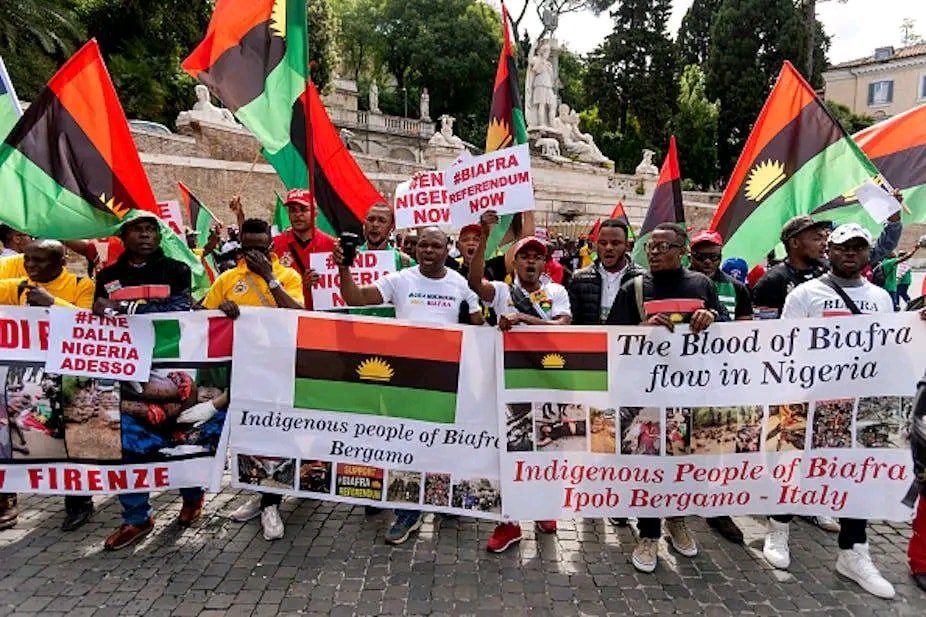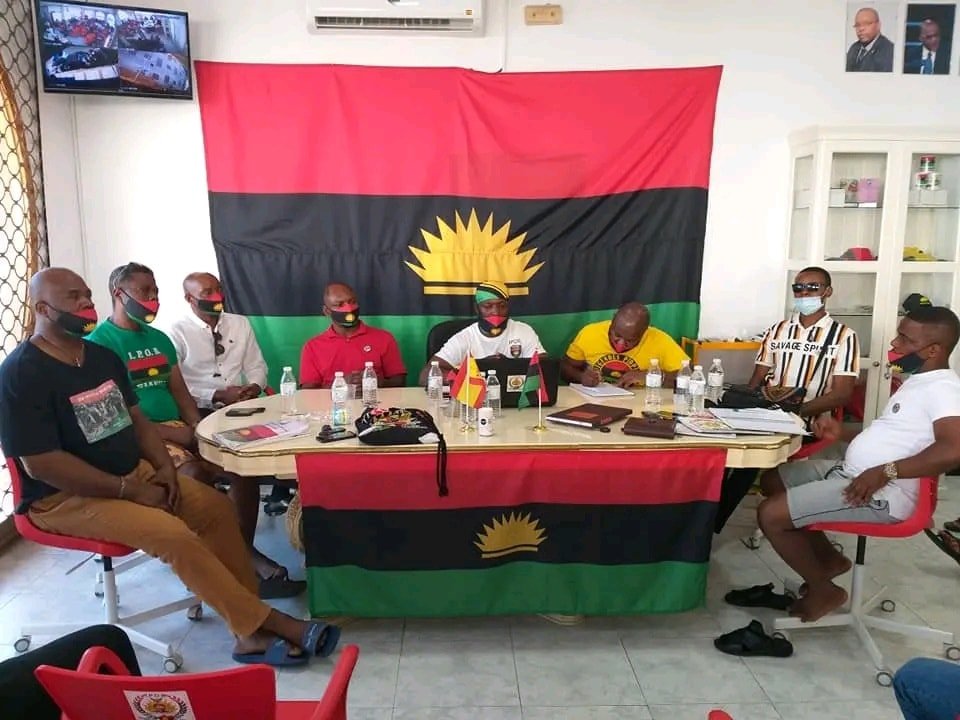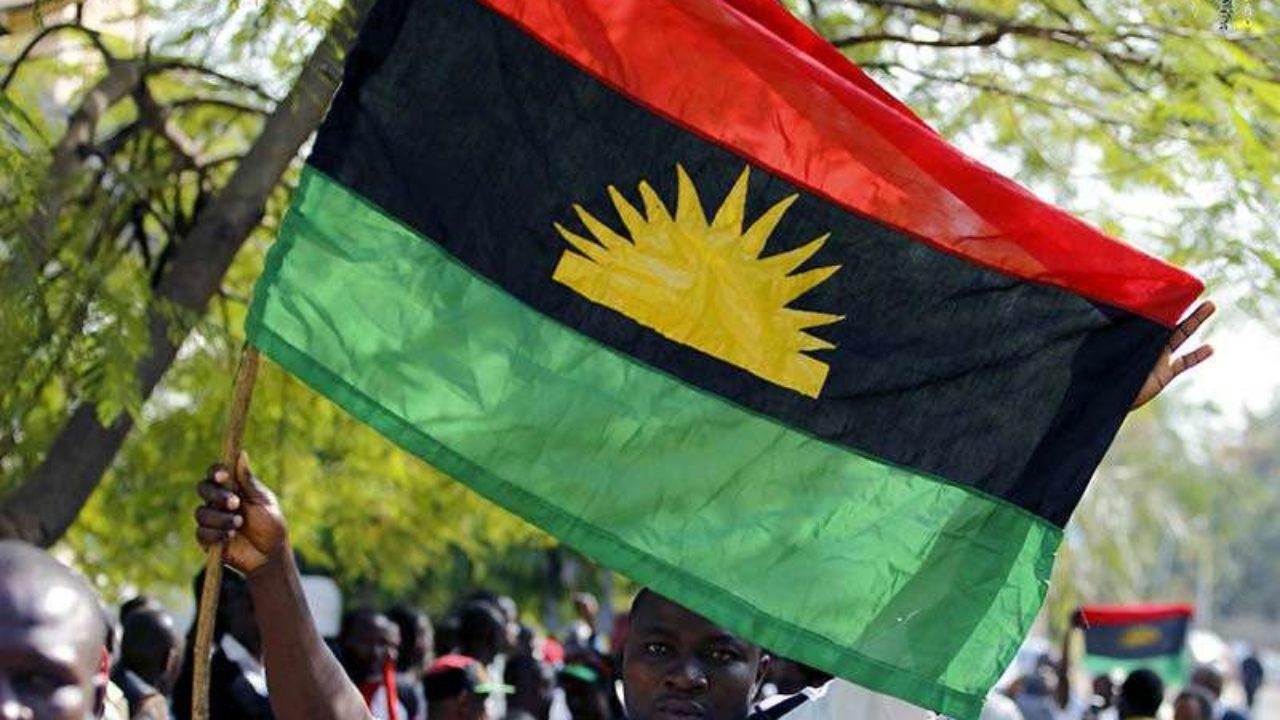In the humid heart of southeastern Nigeria, where the Niger River meets the oil-rich deltas, a dream of self-determination was born amid the ashes of colonial ambition. The Nigerian Civil War, known to many as the Biafran War (1967–1970), was more than a conflict over borders; it was a desperate bid for survival by the Igbo people and their allies against a federation unraveling at the seams. Over three grueling years, this war claimed between 500,000 and 3 million lives—mostly civilians felled not by bullets, but by engineered famine. Today, more than half a century later, the scars of Biafra fester in the form of economic neglect, political exclusion, and a simmering separatist movement. The Indigenous People of Biafra (IPOB) has reignited the call for independence, channeling historical grievances into modern protests that paralyze the Southeast. This account traces the war’s origins, its brutal course, and its enduring shadow over Nigeria’s Igbo population, drawing on eyewitness testimonies, scholarly analyses, and contemporary reports.
The Seeds of Secession: Colonial Legacies and Post-Independence Fractures
Nigeria’s story begins with British colonial cartographers, who in 1914 fused over 250 ethnic groups into an artificial nation-state, prioritizing resource extraction over cultural cohesion. The Igbo, a dynamic ethnic group of about 20 million concentrated in the Southeast, thrived in this pre-colonial mosaic as innovative traders, farmers, and educators. Their emphasis on individual achievement and communal solidarity clashed with the hierarchical structures of the Hausa-Fulani North and the more stratified Yoruba West.
Independence in 1960 promised unity, but ethnic rivalries quickly poisoned the well. The Igbo, who dominated the civil service and military officer corps due to superior Western education, faced resentment from northern leaders wary of southern influence. Political instability peaked with the 1966 coup, led largely by Igbo officers, which toppled the civilian government and killed northern politicians. Retaliation was swift and savage: anti-Igbo pogroms swept through the North, claiming 30,000 lives and displacing over a million. Pregnant women were gutted in Kano; schoolchildren hacked in Jos. These massacres, often ignored in official Nigerian narratives, echoed the Rwandan genocide’s prelude and forced the Igbo back to their homeland. bbc.com
Lieutenant Colonel Chukwuemeka Odumegwu Ojukwu, the Eastern Region’s military governor, faced an impossible choice. The Aburi Accord of 1967, negotiated in Ghana, offered regional autonomy but was sabotaged by federal Prime Minister Yakubu Gowon under British pressure. On May 30, 1967, Ojukwu declared the Republic of Biafra, encompassing the oil-rich Eastern Region and minorities from the Mid-West and Rivers. “We reject the easy temptation to seek to avenge the wrongs with counter-wrongs,” Ojukwu proclaimed, framing Biafra as a beacon of African self-reliance. britannica.com Britain and the Soviet Union backed Nigeria, eyeing oil concessions; France and Portugal covertly aided Biafra, fearing a northern-dominated giant.
The War Machine: From Enugu to the Atomic Hunger Bomb
What Gowon predicted would last “three months” dragged into 30 months of hell. Nigeria’s federal forces, bolstered by British arms and Egyptian pilots, launched Operation UNIFY on July 6, 1967, capturing key towns like Benin. Biafran troops, initially outnumbered but fiercely motivated, held the line at the Awka Front, innovating with homemade “Ogbunigwe” rocket launchers and refining crude oil in makeshift refineries. blackpast.org
The war’s turning point was the blockade. Federal troops encircled Biafra, halting food imports and bombing markets. This “atomic hunger bomb,” as Ojukwu called it, weaponized starvation, killing 2 million civilians—three-quarters children—through kwashiorkor and marasmus. Images of skeletal “Biafran babies” flooded global screens, galvanizing NGOs like the Red Cross for midnight airlifts into Uli Airport. Chinua Achebe, Biafra’s eloquent envoy, toured the world, his dispatches in Morning Yet on Creation Day immortalizing the horror: “The world was silent when we starved.” @Anykwa Military casualties topped 100,000, but civilians bore the brunt; atrocities included mass rapes and village burnings.
Biafra’s defiance shone in ingenuity: they built Oguta Lake Dam for power, produced vaccines amid chaos, and even flew sorties with a lone B-26 bomber. Yet, by 1969, federal advances captured Port Harcourt and Owerri, severing supply lines. Ojukwu fled to Ivory Coast on January 15, 1970; Philip Effiong surrendered, invoking Gowon’s “no victor, no vanquished” mantra. Biafra’s flag came down, but its spirit endured.
“No Victor, No Vanquished”: Reconstruction or Marginalization?
Gowon’s 3Rs—Reconciliation, Rehabilitation, Reconstruction—promised healing. Igbo bank accounts, frozen at £20 per family regardless of holdings, wiped out middle-class wealth. The Abandoned Properties Act (1979) legalized seizures of Igbo homes in Port Harcourt and elsewhere, displacing thousands. No Igbo has held the presidency since Aguiyi-Ironsi in 1966, fueling perceptions of a deliberate “Igbo quota” in federal appointments. roape.net
Post-war, the Southeast languished: federal highways became pothole graveyards, railways bypassed the region (lines to Niger Republic got modern coaches while Enugu rusted). Oil revenues from Igbo lands funded Lagos and Abuja’s skyscrapers, yet the Southeast received crumbs—less than 10% of infrastructure budgets despite contributing 70% of Nigeria’s crude. Unemployment soared to 40%, youth radicalized by exclusion. As Achebe lamented in There Was a Country (2012), Nigeria “failed to learn from Biafra.”

The Resurrection: IPOB and the New Biafran Agitation
The war’s ghosts refused burial. In 1999, the Movement for the Actualization of the Sovereign State of Biafra (MASSOB) led Chief Ralph Uwazuruike emerged nonviolently, but it was Nnamdi Kanu‘s IPOB—founded in 2012 from London—that electrified the cause. Kanu, broadcasting via Radio Biafra, decried “genocide by installments”: marginalization as slow poison. IPOB demands a UN referendum, framing Nigeria as a “zoo” where Igbo are caged beasts. His fiery rhetoric, including calls for arms at events like the 2015 World Igbo Congress, drew federal ire.
Kanu‘s legal odyssey began with his arrest on October 14, 2015, in Lagos by the Department of State Services (DSS) on charges of treasonable felony and terrorism. The detention sparked massive protests in the Southeast, with supporters clashing with security forces. Despite court orders for his release, Kanu remained in custody for over a year. In December 2015, a magistrate granted bail, but the DSS delayed enforcement until April 25, 2017, when a Federal High Court in Abuja, under Justice Binta Nyako, released him on health grounds—N500 million bail with sureties.
Freedom was fleeting. Just five months later, on September 14, 2017, Nigerian Army troops raided Kanu’s Afara Ukwu home in Umuahia, Abia State, during Operation Python Dance—a military exercise critics called a pretext for suppression. bbc.com Gunfire erupted; Kanu’s parents were reportedly killed, and several supporters died. Kanu vanished amid the chaos, jumping bail and resurfacing in Israel, then the UK, where he resumed Radio Biafra broadcasts, The government proscribed IPOB as a terrorist group on September 20, 2017, and revoked his bail in 2019.
Kanu’s second arrest came on June 27, 2021, when Interpol agents allegedly nabbed him in Kenya—though the agency later denied involvement—and extradited him to Nigeria under murky circumstances his lawyers called a “rendition” or kidnapping. Arraigned on 11 counts of terrorism, treason, and incitement, Kanu has languished in DSS custody in Abuja. A brief 2023 appeal and high court ruling quashed charges on jurisdictional grounds, but appeals courts reinstated them, with the Supreme Court set to hear his case in late 2025. reuters.com Recent health concerns—hypertension, prostate issues—prompted a court-ordered medical probe by the Nigerian Medical Association in October 2025, amid pleas for transfer to a hospital. bbc.com
By 2021, Kanu’s rearrest sparked low-level insurgency. The Eastern Security Network (ESN), IPOB’s armed wing formed in 2020 to counter Fulani herder incursions on Igbo farmlands, has been blamed for attacks on police stations and electoral offices. The group’s “Monday Sit-at-Home” orders, which they denied, enforced by gunmen, have backfired: markets shutter, schools empty, funerals halt. In 2025, these disruptions have cost the Southeast over $1 billion cumulatively, exacerbating unemployment and fear. Gunmen, sometimes masquerading as “Unknown Gunmen,” extort traders, kidnap for ransom, and clash with security forces, killing dozens monthly. Imo and Anambra, once economic hubs, are “danger zones” where burials require “settlements” with agitators.
Critics, including Igbo elders, decry IPOB’s tactics as self-sabotage. “They’ve rendered our tycoons mute,” laments one Anambra trader. @odogwu_ogidi Yet, supporters see desperation: federal raids kill unarmed protesters, and Kanu’s detention—upheld by appeals courts despite a 2023 high court nullification—symbolizes unbroken chains. As of October 2025, the Supreme Court looms over Kanu’s fate, with IPOB vowing escalation if denied. greydynamics.com Diaspora remittances fuel the fire, amplifying calls via social media @ElochukwuOhagi

Biafra’s Unfinished Symphony: Toward Justice or Fracture?
The Biafran War was Africa’s first televised famine, a moral stain where superpowers prioritized oil over orphans. It exposed Nigeria’s fragility—a federation built on sand, where ethnic math (Hausa-Fulani 29%, Yoruba 21%, Igbo 18%) breeds zero-sum politics. Today, IPOB’s revolt underscores a truth: unhealed wounds suppurate. “Nigeria forced us to demand Biafra again,” writes activist Elochukwu Ohagi, echoing Ojukwu’s defiance. @ElochukwuOhagi
Reconciliation demands more than rhetoric. Restructuring—true federalism with resource control—could devolve power, funding seaports like Onne and railways to Aba. A truth commission, modeled on South Africa’s, might exhume pogrom mass graves and compensate war widows. Kanu’s release could de-escalate, opening dialogue. Without this, the Southeast risks becoming Nigeria’s Ulster: a perpetual low-boil.
Biafra’s flag may have fallen, but its anthem—”The Land of the Rising Sun”—rises in youth chants. As Achebe warned, ignoring Igbo plight invites repetition. In 2025, with IPOB’s shadows lengthening, Nigeria stands at a crossroads: integrate or disintegrate. The world, once silent, now watches—lest history’s horrors replay in high definition.
For further reading: Chinua Achebe’s There Was a Country; John de St. Jorre’s The Nigerian Civil War; and ongoing coverage from Vanguard and DW. This piece draws on diverse sources to honor all victims, without endorsing violence.
